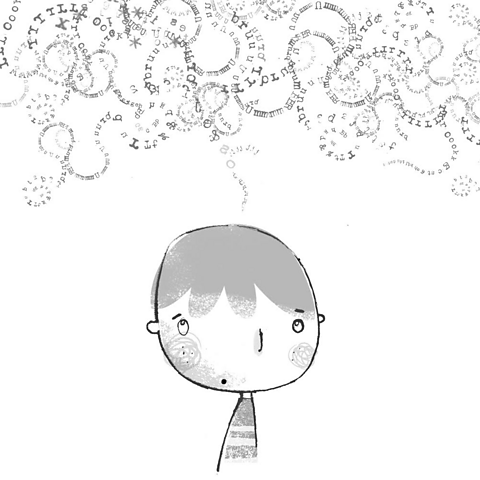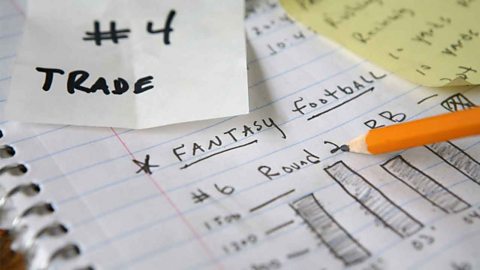One in every 10 people in the UK has some degree of dyslexia, according to the NHS.
Dyslexia is a common learning difficulty that causes problems with reading, writing and spelling.
Signs of dyslexia include reading and writing very slowly, confusing the order of letters in words, inconsistent or poor spelling, understanding information when told verbally but having difficulty with information that's written down.
Dyslexia is lifelong and can present challenges on a daily basis, especially in school and at work. But, people with dyslexia often have good skills in other areas, like creative thinking and problem solving. Each person has a unique experience.
For Dyslexia Awareness Week 2019 we spoke to Tom McLaughlin, an author illustrator from Devon, about his experience with dyslexia.
âI didnât belong in the world of wordsâ

Tom said he found out he was dyslexic when he was about 10 years old.
âPeople knew about it but didnât really know what to do about it,â he said.
He grew up loving stories and adventures but at the time thought books and reading just werenât for him. As early as he can remember Tom had given up on school: âI didnât belong in the world of words,â he told us.
Because of his dyslexia, at school Tom felt he didnât have the kind of brain to cope with the world of reading and writing, so how did he end up writing childrenâs books?
âNo one minds if you make the odd spelling mistakeâ
âI was good at drawing so that was my way in,â he said.
âHaving felt so helpless at school, I clung to that slither of talent like a life raft and became the best at drawing in my class, then my year, just because it was the only thing I had.â
After going to art college Tom got a job as a political cartoonist. Writing jokes and drawing pictures everyday laid the groundwork he needed to become a childrenâs author.
He was illustrating other peopleâs books when a publisher asked if heâd ever thought about turning one of his drawings into a picture book, and writing the story himself.
âSlowly and surely I realised it would be okay, I can do this, I can write stories and itâs fine,â he said.
âNo one minds if you make the odd spelling mistake.â
âI was fired from my own audiobookâ

For some people there are certain advantages to having dyslexia, like creativity or seeing things in a different way, and Tom told us he couldnât imagine what his brain would be like without it. But, it can still be a struggle day-to-day.
âBeing able to read a book out loud to some kids, where I didnât stumble or stutter over words would be quite lovely,â he admitted.
When Tom had his first chapter book published, he went to record the audiobook himself but things didnât go to plan:
âI stumbled so much they eventually fired me from my own audiobook! It was for the right reasons, we would have been there all day!â he said.

Through experiences like this, Tom realised his dyslexia would always be a part of him. For Tom, it will always be easier to write a book than it is to read it.
For any aspiring storytellers who have dyslexia, or struggle with their reading and writing, Tom said there are lots of ways to get your hit of adventure, like through audiobooks or podcasts and telling stories through illustrations and pictures.
âKnow the troubles you encounter at school will come to an end and eventually youâll be able to be who you want to be and do what you want to do. Itâll be alright,â he said.
Tomâs Top Tip
Find out about other people who are dyslexic and see how they coped, see what they did and what theyâve achieved.
'How maths scored me a job in fantasy football'
An interview with Holly â maths teacher, mum-of-one and fantasy football influencer.

Can writing be therapeutic?
How getting creative with words can boost your wellbeing

Four jobs that could save the planet
The stories of four people who do their bit for our ecological future every time they clock in for a shift.
